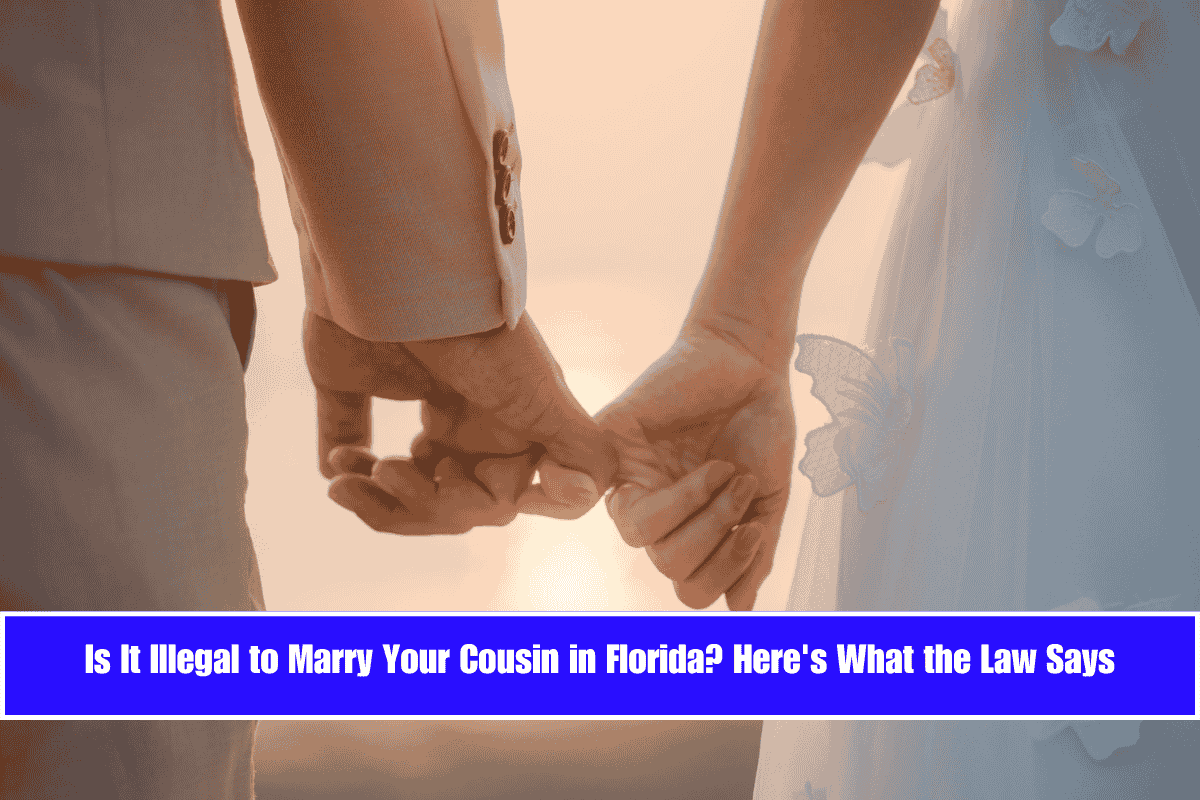In Florida, it is legal to marry your first cousin. The state’s marriage laws specifically outline which familial relationships are prohibited, and first cousins are not among them. Here’s a detailed breakdown of what the law says and how it applies:
Florida’s Marriage Statutes: Who Can’t Marry?
Florida Statute 741.21, which addresses incestuous marriages, states:
“A man may not marry any woman to whom he is related by lineal consanguinity, nor his sister, nor his aunt, nor his niece. A woman may not marry any man to whom she is related by lineal consanguinity, nor her brother, nor her uncle, nor her nephew.”
- Lineal consanguinity refers to direct ancestors or descendants (such as parents, grandparents, children, or grandchildren).
- The law also prohibits marriage between siblings, uncles and nieces, and aunts and nephews.
Notably, first cousins are not included in this list of prohibited relationships. This means there is no legal barrier to first cousins marrying in Florida, and such marriages are recognized by the state.
How Does Florida Compare to Other States?
Florida is among 17 states where first-cousin marriage is fully legal. In contrast, many other states either ban first-cousin marriage outright or allow it only under specific conditions, such as advanced age or proof of infertility. Florida’s approach is straightforward: as long as the relationship is not one of those specifically prohibited, a marriage license can be issued.
What About Other Forms of Cousin Marriage?
The law is clear that the prohibitions extend only to certain close blood relatives. Marriages between more distant cousins (such as second cousins or cousins by marriage) are also legal. The statute does not address these relationships, so they are not restricted.
Are There Other Requirements for Marriage in Florida?
Aside from familial relationship restrictions, Florida generally requires both parties to be at least 18 years old to marry, though there are exceptions for minors with parental consent under certain circumstances. All couples must also meet standard requirements for marriage licenses, such as providing identification and, in some cases, waiting periods.
Incest Laws and Criminal Penalties
Florida law does criminalize sexual relations or marriage between certain close relatives, but again, first cousins do not fall under these criminal prohibitions. The criminal statute focuses on relationships involving lineal consanguinity, siblings, uncles, aunts, nephews, and nieces.
Social and Cultural Considerations
While cousin marriage is legal, it is less common in the United States than in some other parts of the world. Social attitudes may vary, but legality is determined strictly by the statute.
- It is not illegal to marry your first cousin in Florida.
- Florida law only prohibits marriage between direct ancestors/descendants, siblings, aunts/uncles, and nieces/nephews.
- First-cousin marriages are recognized and permitted by the state.
- Other marriage requirements (such as age and consent) still apply.
If you and your first cousin wish to marry in Florida, you can legally do so and obtain a marriage license without concern for state law prohibiting your union.
Sources
- https://www.myfloridalegal.com/print/pdf/node/8268
- https://www.newsweek.com/map-states-marry-cousin-tennessee-ban-1889727
- https://en.wikipedia.org/wiki/Cousin_marriage_law_in_the_United_States
- http://www.leg.state.fl.us/Statutes/index.cfm?App_mode=Display_Statute&Search_String=&URL=0700-0799%2F0741%2FSections%2F0741.21.html
- https://www.rpfoley.com/incest-marrying-or-having-sex-with-a-blood-relative-florida-stat.html


















Leave a Reply